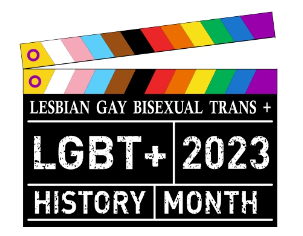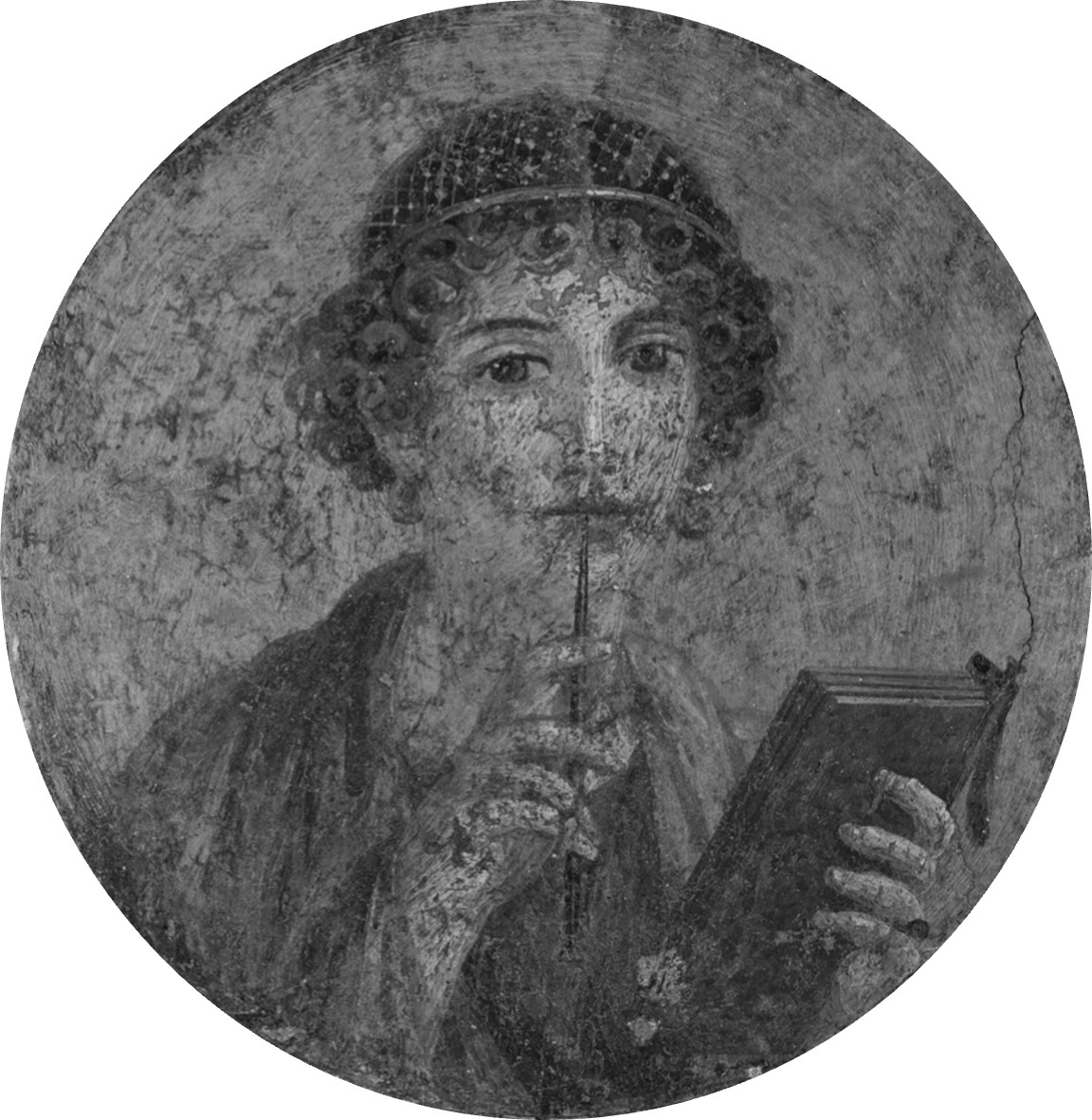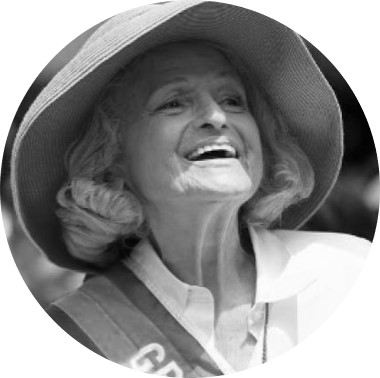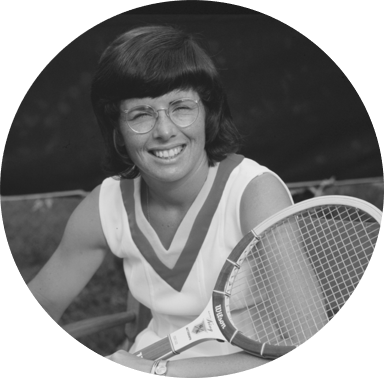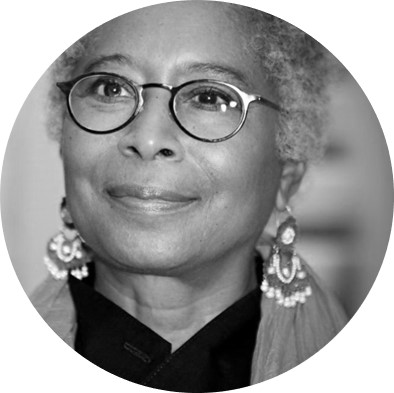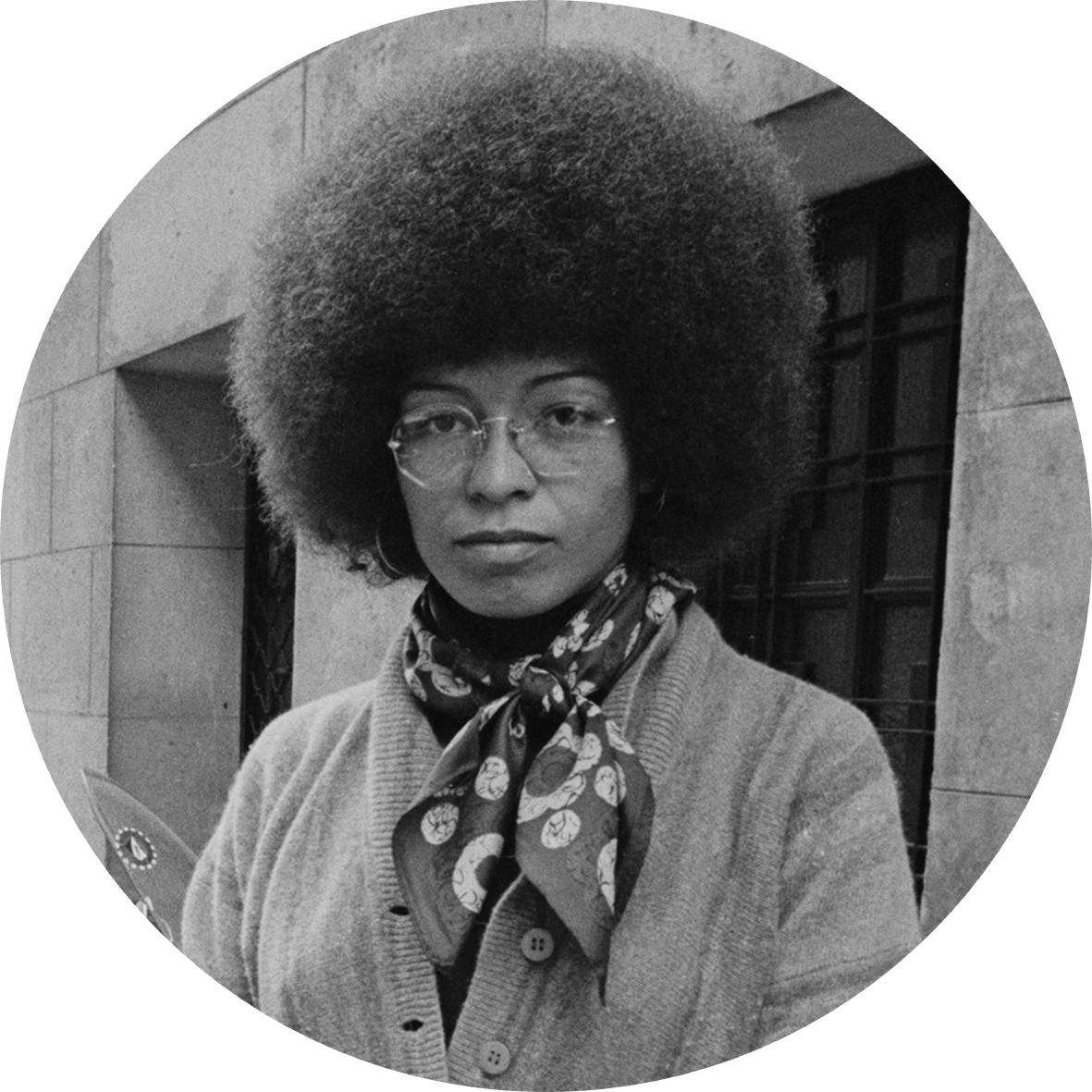Claiming our Past - Celebrating our Present - Creating our Future
The 1st of February marks the start of LGBT+ History Month, a key period in the wider LGBT+ visibility calendar. Where Global Pride Month in June provides a platform and series of opportunities for the LGBTQ+ community to come together in celebration, LGBTQ+ History Month centres the conversation on those who paved the way for LGBT+ rights and equality, who fought for self-expression, and who catalysed change locally, throughout the community and internationally.
Below, members of the LGBT Great team reflect on the LGBT+ women who have changed history and why their contributions to art, sport, politics, and LGBT+ rights and protections matter today.
1. Sappho: Greek lyrical poet (7th-6th Century BCE)
"Someone will remember us I say
even in another time." - Sappho
Sappho was a lyrical poet who lived between the 7th and 6th centuries BCE on the island of Lesbos, Greece. Sappho is widely regarded as one of the ‘original icons’ for many queer people (those who identify as non-heterosexual or as outside the traditional norms of the gender spectrum) and gave rise to the common term, ‘lesbian’. Her name is also the root for the now common term ‘sapphic’, used by many LGBTQ+ women or nonbinary people as a descriptor for themselves and their identities. Little is known about her life, and her poetry only survives in fragments. With so little to go on, studying Sappho’s work requires substantial “reading between the lines” around the reality of being an LGB+ woman at this time in history.
Yet, this is precisely what makes her existence and work so key to the modern queer story – there have always been those who attempt to debate and deny the existence of queer people throughout history, and Sappho’s work has long stood against such debate due to the explicitness of her admiration and feelings for other women. The way in which she is read as explicitly queer has allowed many LGBTQ+ people to see and identify themselves in her works. This kind of reaffirmation of one’s own identity is hugely important to us as queer people, as it allows us to feel seen.
As with many LGBTQ+ figures throughout history, there will continue to be debate around whether they were “really” LGBTQ+. Whilst we must acknowledge that the relationships between Sappho and the women around her may have been different to our contemporary conception of what it means to be queer, she remains an inspiring figure for many in the community. Sappho’s writing, much like the ‘lovers of Pompeii’, long thought to be a heterosexual couple, helps me as a queer person gain a sense of normalcy and empowerment and to fight the feeling of shame I have been taught to feel about my identity. To me, she is a constant reminder that LGBTQ+ people have always existed and always will; that much, like she says, someone will remember us.
— Charlie Lowe-Collins (he/him) is an Intern at LGBT Great
2. Edie Windsor: LGBT+ rights activist (1929-2017)
Edie Windsor was an American LGBTQ+ activist and a computer programmer who led a landmark case to fight for same-sex marriage equality in the US. Edie grew up in a conservative Jewish family. Despite knowing her sexuality, Edie felt she had to marry a man, although her marriage ended in divorce after less than a year. After the divorce, Edie enrolled in a master’s degree in applied mathematics at NYU, and became a programmer at IBM, an environment with few women.
After IBM, Edie founded PC Classics, a consulting firm, which helped LGBTQ+ people become literate in technology. Edie fell in love with Thea Spyer, a Dutch psychologist in 1965. They were engaged in 1967 and only married in 2007 in Canada. Thea died in 2009. Following Thea’s death, Edie started an arduous journey to fight for marriage equality in the US. The US federal government had imposed Edie on a federal tax bill totalling $363,053, which a straight widow would not have owed. The US also refused to recognise her marriage with Spyer due to the Defence of Marriage Act, which unilaterally denied any marriages of same-sex couples. Following a long lawsuit with the US federal government,
Edie won her case in 2013. As a direct result of Edie's work, the Supreme Court ruled that same-sex marriages would benefit from the same civil protections as opposite-sex couples and that no US State could prevent same-sex couples from marrying. She remained a prominent activist in the LGBTQ+ community until she died in 2017 at the age of 88. Her contribution to the LGBTQ+ community reflected the importance of taking action to achieve what we deserve. Without her fight, all the protections and benefits we have now as members of the LGBTQ+ community would not have been possible. We are still living under the fear that our relationships with our partners are not recognised and protected by the law. Unfortunately, there is still a long way to go in other countries where LGBTQ+ people are openly denied access to social benefits and support. It is fair to say we certainly need more Edie Windsors as much today as ever before.
— D. Han (he/him) is an Intern at LGBT Great
3. Billie Jean King: sportswoman and activist (1943-present)
Billie Jean King, born in 1943, is a tennis champion and social activist. King is best known for defeating Bobby Riggs in the “Battle of the Sexes” in 1973, an exhibition match that fought for equal pay within sports. As a result, King became the first professional sportswoman in tennis to be paid equally compared with her male counterparts. In 1971, King was publicly outed as a lesbian. Despite her management urging her to deny these perceived “claims”, King simply refused to hide her identity. She famously said:
“I’m going to do it. I don’t care. This is important to me, to tell the truth.”
Following this and throughout her life, King continued to champion women and the LGBTQ+ community. Indeed, she was recognised with a Presidential Medal of Freedom for her advocacy for women in sports and LGBTQ+ rights. For me personally, Billie Jean King is an inspiration due to her constant bravery and resilience – she consistently and unfalteringly pushed for change. Not only an advocate for women’s rights, but also for the LGBTQ+ community, King dealt with sexism and homophobia in the media head-on whilst also battling her own insecurities. Despite being one of the first openly gay women in the industry, her continued strength, determination, and positivity really does set her apart.
Today, LGBTQ+ athletes still face a battle regarding equal opportunities and acceptance within sports. The stigma created around being LGBTQ+ in sport and the pressure on those who are publicly ‘out’ has created the idea that the industry is an unwelcoming environment. Playing professional women's rugby union has enabled me to experience how welcoming sports can be for LGBTQ+ women. I hope that King's legacy can continue to inspire LGBTQ+ people to take the opportunities in sports whilst pushing for change. Continuous visible support for the LGBTQ+ community enables individuals to reach their potential, knowing others will help on this journey, allowing industries to progress.
— China-Marie Kill (she/her) is an Intern at LGBT Great
4. Alice Walker: novellist, poet, and social activist (1944-present)
Alice Walker is an American poet, novelist and activist, and her sustained contributions to LGBT+ inclusion certainly make her a worthy inclusion in this list for LGBTQ+ history month. Walker lived through the Jim Crow laws, which enforced local and state-wide racial segregation in the Southern US States between the late 19th century and 1965. Under these laws, education for young black women like Walker was intensely frowned upon, especially for black sharecroppers.
Walker became a student at Spelman College in Atlanta in the early 1960s, which is where her involvement with activism began. She met Martin Luther Kin Jr. during this period and was inspired by the Civil rights movement. This led her to return to the American South as an activist for the Civil Rights movement, where she marched in 1963 in the March Of Washington, as well as continued to volunteer to register black voters in Georgia and Mississippi. In 1982, she became the first African American woman to win the Pulitzer Prize for Fiction for her novel ‘The Colour Purple’. She has published seventeen novels and multiple collections of short stories and poems to date.
Walker’s bravery and perseverance are real sources of inspiration for me. She coined the term “womanist” as part of her feminist advocacy for women of colour. Her focus on the intersections of race, class, and gender expression are reminders of the importance of fighting for something you believe in – whether at work or within your personal life. I hope Walker is a reminder to us all this LGBTQ+ history month to keep in mind what it feels like to put into practice the terms ‘womanist’ and ‘ally’. What is it that each of us can do to be more inclusive and understanding? How can we make spaces more inviting for folks regardless of their race, class, and gender expression?
— Patricia Kekula (she/they) is Member Operations and Project Coordinator at LGBT Great
5. Angela Davis: political acitivst and author (1944-present)
Born 26 January 1944 in Alabama to an African American family, Angela Yvonee Davis is an American political activist, philosopher, academic, and author. She is currently a professor at the University of California, Santa Cruz. Davis was briefly married to a man, before famously and publicly coming “out” as a lesbian during an interview with OUT Magazine in 1997.
Regarded as someone ‘intersectional before the term was even coined’, Davis’ has been a powerful voice for the oppressed. Her written works structurally analyse the interplay between race, class, gender, sexual orientation, ability, citizenship, and other intersectionalities. In addition, she has also been heavily involved in activism and has been affiliated with many liberatory movements in recent history. Her activism extended across her varied publications, such as ‘Women, Race and Class’, and was expressed in her engagement with a range of initiatives, including the African American Agenda 2000, an alliance of Black feminists which combats racism, homophobia, and sexism, which Davis cofounded with Kimberlé Crenshaw.
As an LGBTQ+ woman of colour, her mission to demonstrate that underrepresented identities are intrinsically woven into a hierarchal structure of underprivilege and inequality has been a driver of holistic inclusion in contemporary queer politics. Moreover, my own identity as a queer person of colour has, time and again, found solace and confidence in Davis’ writings. It has inspired me to gain more knowledge, fight for true justice and rejoice in my unique self.
— Shreyas Dutta (he/they) is an Insights and Content Analyst at LGBT Great

